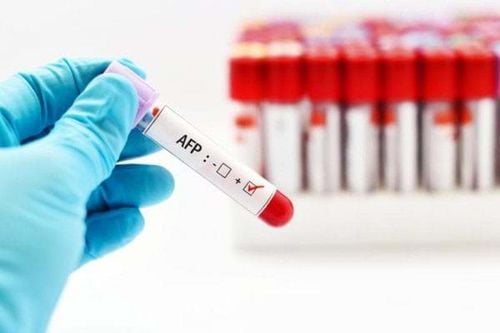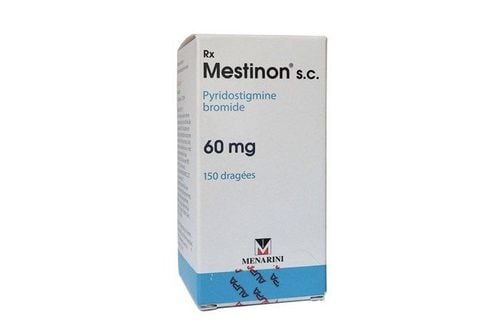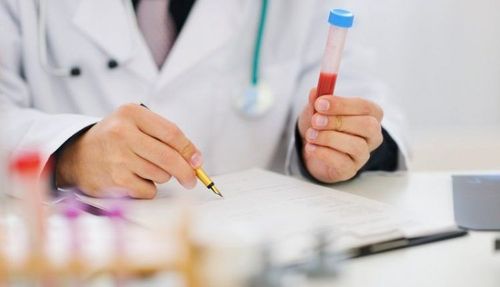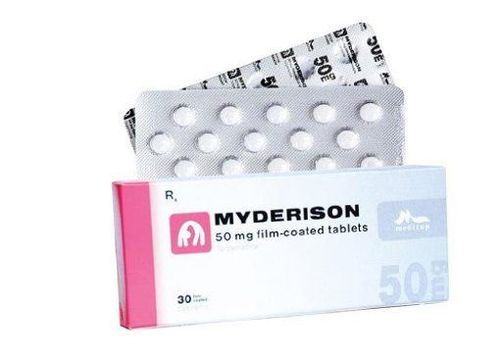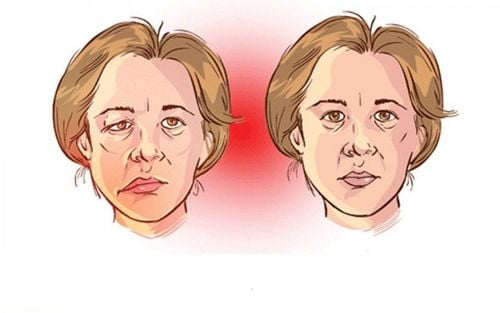This is an automatically translated article.
Blood creatinine test helps to assess the patient's health situation. When receiving the results, many people do not know what low Creatinine indicates, related to what disease? The following article will help answer the creatinine level and the diseases that the patient may have when the creatinine is too low or too high.
1. What is Creatinine?
Creatinine is a waste product, excreted by the kidneys. The source of Creatinine is creatine synthesized in the liver, then phosphorylated in the liver to creatinphosphate and then transported in the blood to storage in the muscle, used for muscle contraction. Creatinphosphate degradation produces creatinine. Since Creatinine is eliminated by the kidneys, it accurately reflects the filtering function of the kidneys.Since the body produces Creatinine at a steady rate, creatinine levels can be checked by performing periodic blood tests. Because chronic kidney disease has few warning signs, measuring creatinine levels is important to help determine glomerular filtration rate, which is an indicator of overall kidney function. The quantification of the Creatinine index also reflects kidney-related diseases and a number of other diseases.
2. A brief overview of the Creatinine test
2.1 Tests to do Blood Creatinine Level: The results obtained show how well the kidneys are working; Creatinine clearance: Measures how much creatinine is removed from the blood by the kidneys. This test provides better information than the creatinine blood test about kidney function. This test works on both blood and urine samples collected over 24 hours; Blood urea nitrogen-creatinine ratio (BUN): The BUN test measures the amount of urea in the blood. Blood creatinine and blood urea nitrogen (BUN) levels are used to find the ratio of BUN to creatine. This ratio helps your doctor check for problems (for example, dehydration) that are causing abnormal BUN and creatinine levels. 2.2 Indications for tests The above tests are performed to:
Assess the functioning of the kidneys; Assess kidney disease status; Assess kidney function in people taking medications that can cause kidney damage; Check the patient for severe dehydration. 2.3 Preparing and performing the test Test preparation:
Do not exercise strenuously for 48 hours before the test; Do not eat more than 225g of meat, especially beef or other protein in the 24 hours before the test; Drink enough water during the 24-hour urine collection (do not drink coffee or tea). Perform the test:
Take a blood sample: The medical staff wraps an elastic band around the patient's upper arm to stop the bleeding. This makes the veins underneath larger, making it easier for the heart to enter the veins. Next, clean the needle site with alcohol, place the needle in the vein, attach a tube to the needle to draw blood, remove the bandage from the arm when enough blood is collected, and then place a gauze or cotton ball on the needle site. when the needle is withdrawn. Finally, gently press on the blood collection site, bandage it; 24-hour urine collection: Start collecting urine in the morning, upon waking up, write down the time of urination, marking the beginning of 24-hour urine collection. Over the next 24 hours, the patient collects all of the urine. The laboratory usually provides the patient with a large container with a capacity of about 4L. The patient urinates into a small, clean bottle and then pours the urine into the container, without touching the inside of the box or barrel. Next, keep the box in the refrigerator for 24 hours. Take a final urine sample before the end of the 24-hour period, place the urine container in a large bucket, record the time. 2.4 Reading results of Creatin index, creatinine clearance and BUN Creatinine index in normal people is: 53 - 106 mmol/l in men; 44 - 97 mmol/l in women; Creatinine clearance in normal subjects is: 107 - 139 mL/min in men; 87 - 107 mL/min in women; The ratio of BUN to creatine: In adults is 6 - 25 (best value is 15.5).
3. What does a low creatinine level suggest?
Lower than normal creatinine levels can be due to the following reasons:
Low muscle mass: Since muscle breakdown produces Creatinine, low muscle mass can lead to low Creatinine levels. The elderly are more at risk for this condition because muscle mass declines with age. In addition, malnutrition can cause low muscle mass and low creatinine levels. In addition, chronic conditions such as muscular dystrophy or myasthenia gravis can also lead to low creatinine levels; Pregnancy: Pregnancy increases blood flow to the kidneys, increases urine production, eliminates creatinine faster, leading to lower blood creatinine levels; Unscientific weight loss: Losing weight too quickly, without science can cause muscle mass loss and lead to low Creatinine levels; Other problems: Blood thinning, syndrome of inappropriate secretion of ADH hormone,...
4. What does a high Creatinine index mean?
In addition to low creatinine status, high creatinine is also very common. Blood creatinine is elevated in the following cases:
Renal failure due to prerenal origin: Dehydration, hemorrhage, decompensated heart failure, taking diuretics or antihypertensive drugs, renal artery stenosis; Renal failure due to renal origin: Glomerular damage: Diabetes, hypertension, systemic lupus erythematosus, glomerulonephritis, amyloidosis, igA deposition in the glomerulus; Renal tubular damage: Nephritis - acute or chronic pyelonephritis, multiple myeloma, nephrolithiasis, nephrotoxicity, hyperuricemia; Renal failure due to post-renal origin: Kidney stones, bladder tumor, uterine tumor, prostate cancer, retroperitoneal fibrosis; Other causes: Increased protein absorption, high-intensity exercise, muscle injury, shock, side effects of some drugs,... Creatinine in urine is elevated in the following cases: Exercising, agitation extremities, diabetes, common hypothyroidism, infections,...
Diet, physical activity play an important role in regulating blood creatinine levels. If the test results are abnormal with a low or high creatinine level, the patient should talk to their doctor about treatment options to return the creatinine level to normal. Combined with a regular exercise regimen and routine health checkups, you'll be healthier every day.
Please dial HOTLINE for more information or register for an appointment HERE. Download MyVinmec app to make appointments faster and to manage your bookings easily.




